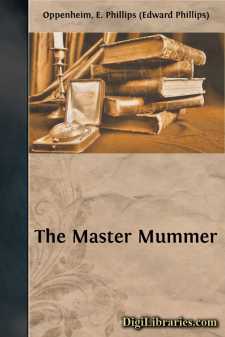Categories
- Antiques & Collectibles 13
- Architecture 36
- Art 48
- Bibles 22
- Biography & Autobiography 813
- Body, Mind & Spirit 142
- Business & Economics 28
- Children's Books 14
- Children's Fiction 11
- Computers 4
- Cooking 94
- Crafts & Hobbies 4
- Drama 346
- Education 46
- Family & Relationships 57
- Fiction 11829
- Games 19
- Gardening 17
- Health & Fitness 34
- History 1377
- House & Home 1
- Humor 147
- Juvenile Fiction 1873
- Juvenile Nonfiction 202
- Language Arts & Disciplines 88
- Law 16
- Literary Collections 686
- Literary Criticism 179
- Mathematics 13
- Medical 41
- Music 40
- Nature 179
- Non-Classifiable 1768
- Performing Arts 7
- Periodicals 1453
- Philosophy 64
- Photography 2
- Poetry 896
- Political Science 203
- Psychology 42
- Reference 154
- Religion 513
- Science 126
- Self-Help 84
- Social Science 81
- Sports & Recreation 34
- Study Aids 3
- Technology & Engineering 59
- Transportation 23
- Travel 463
- True Crime 29
The Mischief Maker
Categories:
Description:
Excerpt
CHAPTER I
SYMPATHY AND SELFISHNESS
The girl who was dying lay in an invalid chair piled up with cushions in a sheltered corner of the lawn. The woman who had come to visit her had deliberately turned away her head with a murmured word about the sunshine and the field of buttercups. Behind them was the little sanitarium, a gray stone villa built in the style of a château, overgrown with creepers, and with terraced lawns stretching down to the sunny corner to which the girl had been carried earlier in the day. There were flowers everywhere—beds of hyacinths, and borders of purple and yellow crocuses. A lilac tree was bursting into blossom, the breeze was soft and full of life. Below, beyond the yellow-starred field of which the woman had spoken, flowed the Seine, and in the distance one could see the outskirts of Paris.
"The doctor says I am better," the girl whispered plaintively. "This morning he was quite cheerful. I suppose he knows, but it is strange that I should feel so weak—weaker even day by day. And my cough—it tears me to pieces all the time."
The woman who was bending over her gulped something down in her throat and turned her head. Although older than the invalid whom she had come to visit, she was young and very beautiful. Her cheeks were a trifle pale, but even without the tears her eyes were almost the color of violets.
"The doctor must know, dear Lucie," she declared. "Our own feelings so often mean nothing at all."
The girl moved a little uneasily in her chair. She, also, had once been pretty. Her hair was still an exquisite shade of red-gold, but her cheeks were thin and pinched, her complexion had gone, her clothes fell about her. She seemed somehow shapeless.
"Yes," she agreed, "the doctor knows—he must know. I see it in his manner every time he comes to visit me. In his heart," she added, dropping her voice, "he must know that I am going to die."
Her eyes seemed to have stiffened in their sockets, to have become dilated. Her lips trembled, but her eyes remained steadfast.
"Oh! madame," she sobbed, "is it not cruel that one should die like this! I am so young. I have seen so little of life. It is not just, madame—it is not just!"
The woman who sat by her side was shaking. Her heart was torn with pity. Everywhere in the soft, sunlit air, wherever she looked, she seemed to read in letters of fire the history of this girl, the history of so many others.
"We will not talk of death, dear," she said. "Doctors are so wonderful, nowadays. There are so few diseases which they cannot cure. They seem to snatch one back even from the grave. Besides, you are so young. One does not die at nineteen. Tell me about this man—Eugène, you called him. He has never once been to see you—not even when you were in the hospital?"
The girl began to tremble.
"Not once," she murmured.
"You are sure that he had your letters? He knows that you are out here and alone?"
"Yes, he knows!"
There was a short silence. The woman found it hard to know what to say....












